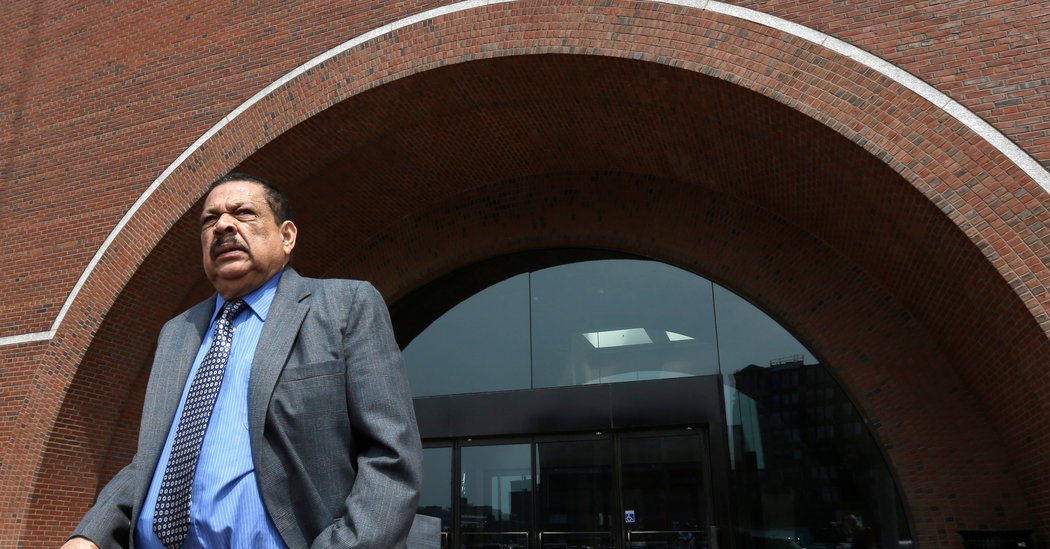NORTH CAROLINA
 The U.S. Wednesday extradited Inocente Orlando Montano Morales, a former colonel in the Salvadoran army, to stand trial in Spain for charges related to the murder of five Spanish Jesuit priests in El Salvador in 1989, according to authorities.
The U.S. Wednesday extradited Inocente Orlando Montano Morales, a former colonel in the Salvadoran army, to stand trial in Spain for charges related to the murder of five Spanish Jesuit priests in El Salvador in 1989, according to authorities.
This is one of the first top-ranking Salvadoran commanders to face criminal prosecution, officials said.
Morales, 74, formerly of Everett, Massachusetts, and 19 other former Salvadoran military officials were indicted in Spain for the 1989 murders of five Spanish Jesuit priests during the 10-year Salvadoran civil conflict.
An arrest warrant for Montano was issued in March 2011 by a Spanish magistrate judge, according to officials.
“Criminals and those lawfully charged with criminal offenses overseas should not be able to find safe haven in the United States,” said Acting Assistant Attorney General John P. Cronan. “Today’s extradition demonstrates our firm commitment to honoring our obligations under extradition treaties. As a result, an alleged human-rights violator will now face justice in Spain.”
Twenty-six years later, the New York Times reported: “the United States government, which spent more than $4 billion in assistance to El Salvador’s military during the conflict — including training the Atlacatl Battalion, which massacred the Jesuits — is now working to bring some of the officers it once partnered with to justice.”
“This extradition, and the investigation and prosecution that preceded it, marks the culmination of longstanding and significant collaboration among HSI Boston, ICE’s Human Rights Violators and War Crimes Center, the U.S. Attorney’s Offices in Boston and Raleigh, and DOJ’s Office of International Affairs,” said ICE Deputy Director Thomas D. Homan.
In response to the government of Spain’s request pursuant to the extradition treaty between the United States and Spain, officials said the U.S. Department of Justice filed a complaint in federal court in April 2015 seeking Montano’s extradition to Spain.
According to the complaint, between 1980 and 1991, El Salvador was engulfed in a civil conflict between the military-led government and the Farabundo Martí National Liberation Front or FMLN.
During this conflict, in the early morning hours of Nov. 16, 1989, members of the Salvadoran military allegedly murdered six Jesuit priests, their housekeeper, and the housekeeper’s 16-year old daughter at the Universidad Centroamericana.
Five of the Jesuit priests were Spanish nationals, and the remaining victims were from El Salvador.
At the time, Montano was a colonel in the Salvadoran army, and he also served as Vice Minister of Defense and Public Safety.
The complaint alleges that he shared oversight responsibility over a government radio station that, days before the massacre, issued threats urging the murder of the Jesuit priests.
The day before the murders, Montano also allegedly participated in a series of meetings during which one of his fellow officers gave the order to kill the leader of the Jesuits and leave no witnesses.
The following day, members of the Salvadoran army allegedly executed the six priests, their housekeeper, and the housekeeper’s daughter.
On Feb. 4, 2016, a U.S. magistrate judge in the Eastern District of North Carolina ruled that Montano could be extradited to Spain to stand trial for charges stemming from his participation in the murder of the five Spanish Jesuit priests.

In August 2017, the federal district court in the Eastern District of North Carolina dismissed Montano’s habeas corpus petition challenging the magistrate judge’s ruling.
Montano unsuccessfully sought a stay of his extradition in federal court in North Carolina, the U.S. Court of Appeals for the Fourth Circuit, and the U.S. Supreme Court.
On Oct. 20, the U.S. Department of State issued an order granting Montano’s surrender to Spain.
Montano’s extradition follows his 21-month federal prison sentence in the United States for his 2013 conviction in the District of Massachusetts for immigration fraud and perjury in connection with false statements that he made to immigration authorities to remain in the United States.
Montano served his prison sentence in North Carolina, which is where his extradition proceedings took place.
His criminal conviction stemmed from false statements Montano made to obtain Temporary Protective Status or TPS, a benefit available to foreign nationals, permitting them to remain in the United States if they are unable to safely return to their home country because of ongoing armed conflict, the temporary effects of an environmental disaster, or other extraordinary and temporary conditions.
In 2002, Montano was present in the United States and, on several occasions thereafter, applied for and obtained TPS. On his applications, Montano falsified the date on which he entered the country because he knew that if he stated the actual date, he would have been ineligible for TPS.
The allegations contained in the Spanish extradition request are merely accusations, and any finding of guilt or innocence will be made by Spanish courts, according to officials.

